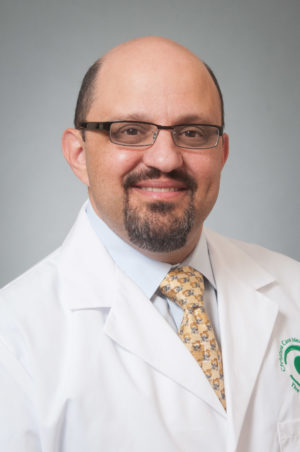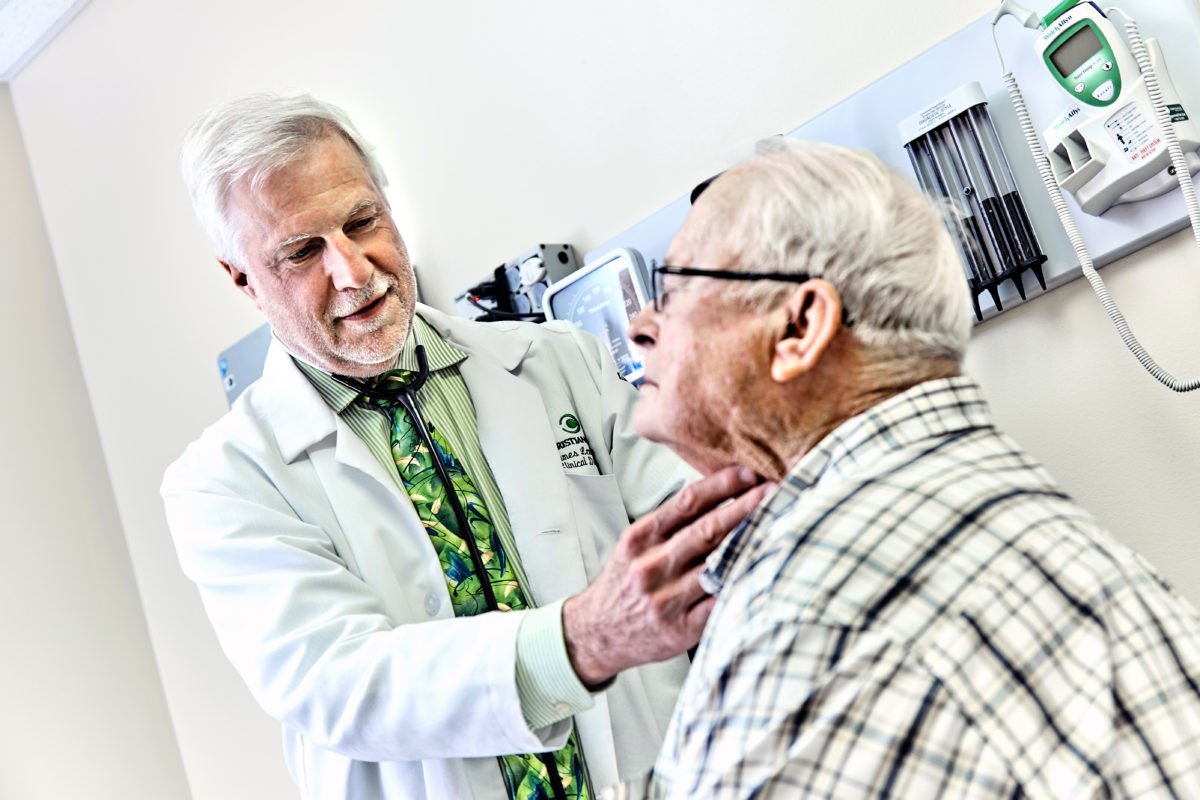Two decades ago when Christiana Care Health System presented its first Diabetes Update, Dr. James Lenhard remembers it as a “Chicken Little” exercise in convincing health care providers outside of his own field of endocrinology that diabetes is both an indicator and an outcome of a patient’s overall health and well-being. Today, he said, awareness of diabetes as a public health threat is “light years higher” than it used to be.
The engaged audience at Christiana Care’s 22nd annual Diabetes Update in March made it clear.
“The diversity of the audience at today’s symposium underscores that there is really no aspect of health that diabetes doesn’t touch,” said Dr. Lenhard, who is section chief of Endocrinology.
Sponsored by Christiana Care in collaboration with the Delaware Diabetes Coalition, the 2018 continuing medical education program examined diabetes from a global perspective, looked at behavioral health aspects of chronic disease management and provided updates in the insulin-based management of diabetes.
He said he is often asked what is the worst kind of diabetes to have — Type 1 or Type 2? His answer: “Uncontrolled.”

About half of the U.S. population — and roughly 100,000 Delawareans — have either diabetes or pre-diabetes. The Centers for Disease Control predict that more than half of all U.S. children today will be obese by the time they reach 35. Dr. Lenhard anticipates an unrelenting and persistent increase in prevalence of the disease.
Diabetes is not only a global health threat; it is major economic problem. In Delaware alone, he said we spend $1.1 billion a year on the disease and its complications.
Diabetes is far from unique to the United States. Statistics indicate a massive explosion of diabetes, especially in underserved African countries, such as Ethiopia, where poverty is a major factor, patients have fewer preventive checkups and they are at greatest risk for complications.
Elias S. Siraj, M.D., Dr. Med., FACP, FACE, of Eastern Virginia Medical School in Norfolk, Virginia, noted that, by race, Caucasians have the lowest risk for diabetes, followed by Asian-Americans, Hispanics and African-Americans. At highest risk, he said, are American Indians, with incidence rates as high as 50 percent in some tribes. Outcomes do tend to be worse in minority populations and especially in underserved communities, he said, but the greatest risk factor for all minorities is life in America.
“All minorities in the United States have a higher prevalence of diabetes than those who continue to reside in their country of origin,” he said, citing American high-fat and high-carbohydrate diets and a sedentary lifestyle. Key to helping minority patients manage their risk and prevent complications through targeted interventions, he said, is culturally adapted education that takes into account the patient’s education level, language barriers and cultural beliefs and habits, particularly the specific foods the patient likes to eat.
“We need to let our patients teach us what they do at home,” he said.
If it’s not culturally competent, it’s not useful
Lorena Drago, MS, RN, CDN, CDE, shared a practical guide to nutrition counseling for Hispanic patients with diabetes. It is not enough to simply translate existing educational material from English to Spanish, she said. Regional food options and preferences, as well as linguistics, must be considered.

“If you are educating a patient who lives in the U.S. but identifies culturally as Hispanic about good nutrition choices to help manage diabetes, it is important to keep in mind where in Latin America that patient — or his or her ancestors — were born and raised,” she said. “If education is not culturally competent, it is not useful.”
When de-prescribing is the prescription
Just as cultural differences must be considered, age also plays a factor in how diabetes affects a person’s well-being. Dementia is twice as likely to occur in those with diabetes, said Lynsey Brandt, M.D., Pharm.D., associate medical director of Christiana Care’s Geriatric Consult Program, and older patients may have trouble performing self-care tasks such as operating a glucose meter. Poor appetite can lead to irregular meals and, in turn, weight loss.

Dr. Brandt’s recommendations are to simplify the patient’s regimen, enlist caregivers to monitor for hypoglycemia, and involve the patient and family in a frank discussion of the goals of therapy. She also cautioned providers to look for the “prescribing cascade” that she frequently sees in caring for elderly patients.
“De-prescribing is the wave of the future in the care of older adults,” said Dr. Brandt.
Treating male menopause?
A billion dollar industry has emerged in recent years to treat so-called “male menopause,” the age-related decline in testosterone levels rebranded as “Low T.”
Christiana Care endocrinologist Marc Laufgraben, M.D. MBA, cautioned the audience about what he called the “great American testosterone scam” when it comes to treating men with diabetes. Obesity and diabetes, along with aging, do tend to lower a male’s sex hormone levels. Yet the medications touted to improve quality of life for men are not approved for age-related declines in testosterone, he said. Further, testosterone is neither likely to improve erectile dysfunction in patients with diabetes, nor will it meaningfully improve diabetes control.

“What are we trying to accomplish?” he said. He recommends therapeutic lifestyle changes instead.
Rounding out the Diabetes Update were Jack Leahy, M.D., professor and co-director of the Division of Endocrinology, Diabetes & Metabolism and research program with the University of Vermont Medical Center, who shared pearls and updates in the insulin-based management of diabetes; and Hofstra University’s Javier Morales, M.D., FACP, FACE, clinical associate professor of medicine with Hofstra-Northwell School of Medicine, who discussed hypoglycemia and the treatment of diabetes. Bret Boyer, Ph.D., of Widener University’s Institute for Graduate Clinical Psychology, covered behavioral health aspects of chronic disease management, specifically Type 2 diabetes.
“There is a mythology on the street that using insulin is more intrusive than a diet and exercise regimen,” said Dr. Boyer.

While people with diabetes do have twice the rate of depression, what providers really need to consider, he said, is how the stress of managing diabetes — especially the constant, intrusive worry over the need to change their diet or a fear of their blood sugar getting dangerously low during the night— impacts blood sugar and metabolic changes. He recommends that providers focus on what is actually getting in the way of self-management for their patients: coping, intellectual function, literacy, culture, trust or social support.
“Insulin is not an easy out, but neither should you use the transition to needing insulin as a ‘bad outcome’ patients should work hard to avoid,” he said. “We need to help people manage their blood glucose in a way that it is not managing them. Help them be specific about their fears, address the dilemma head-on and frame insulin, when needed, as a treatment that helps toward self-management.”
More than 100 primary care and specialty providers, including physicians, nurses, dietitians and diabetes educators, attended the Diabetes Update at the John H. Ammon Medical Education Center, joined by providers from Kent and Sussex counties via live video conference from the University of Delaware’s Virden Retreat Center in Lewes.



